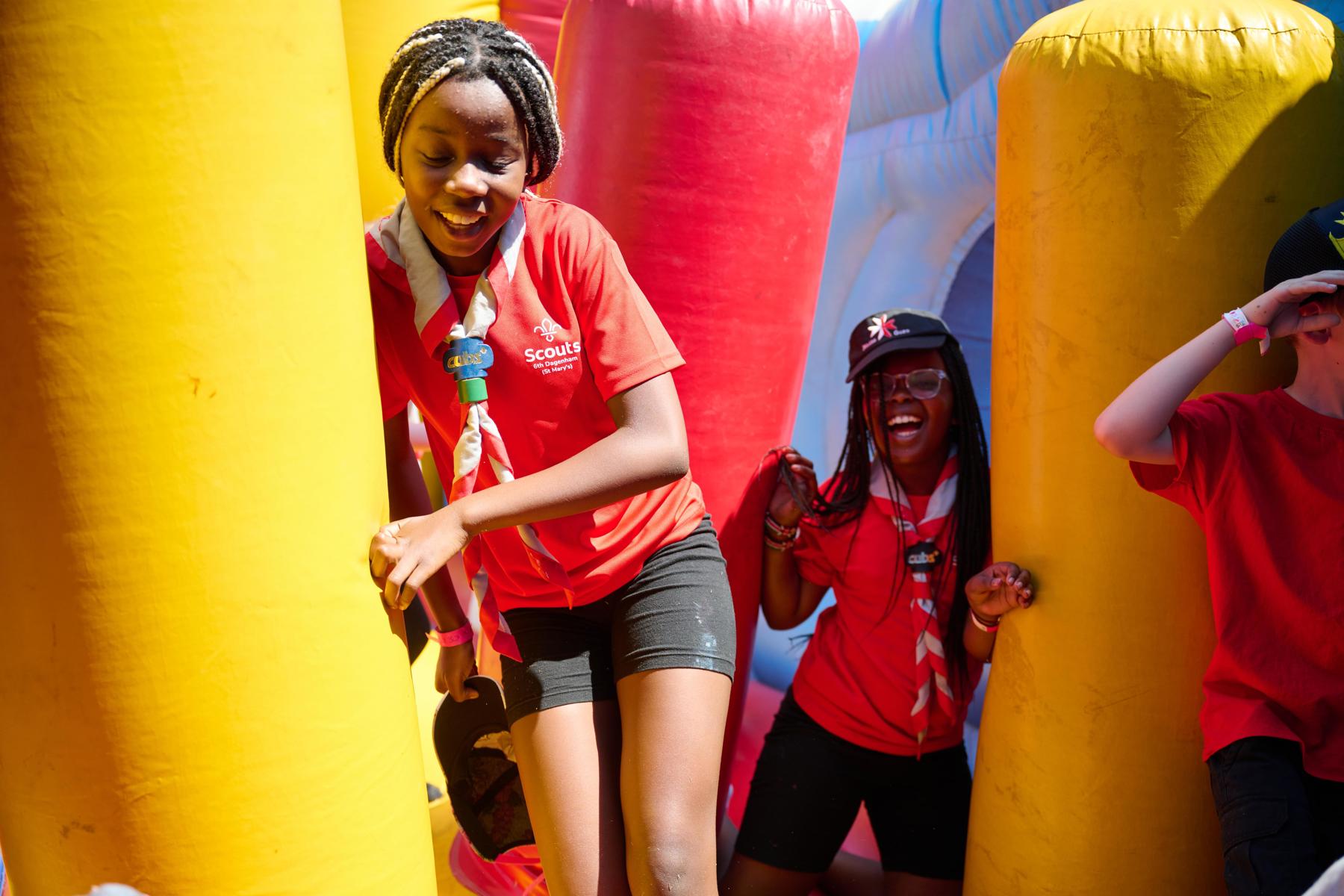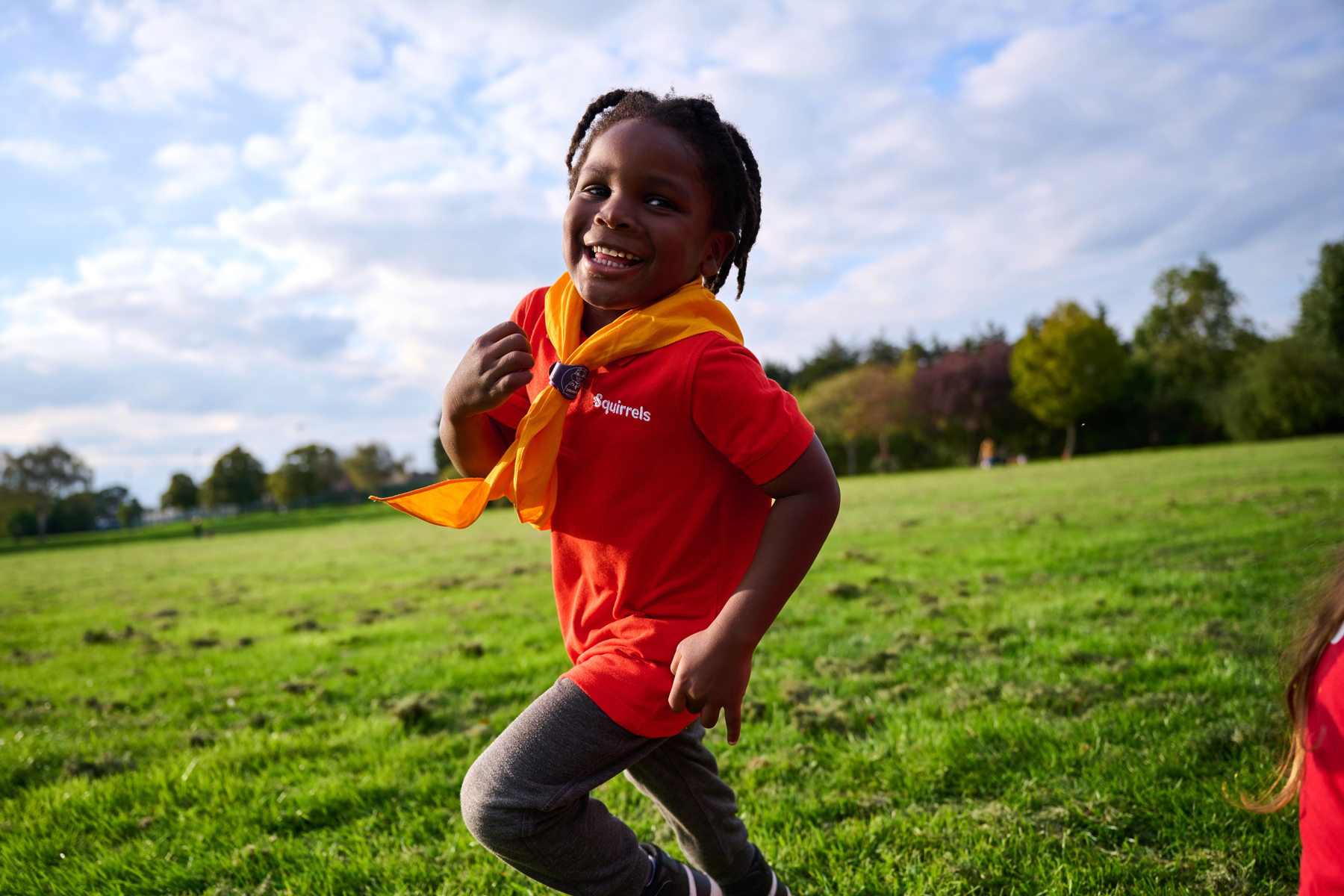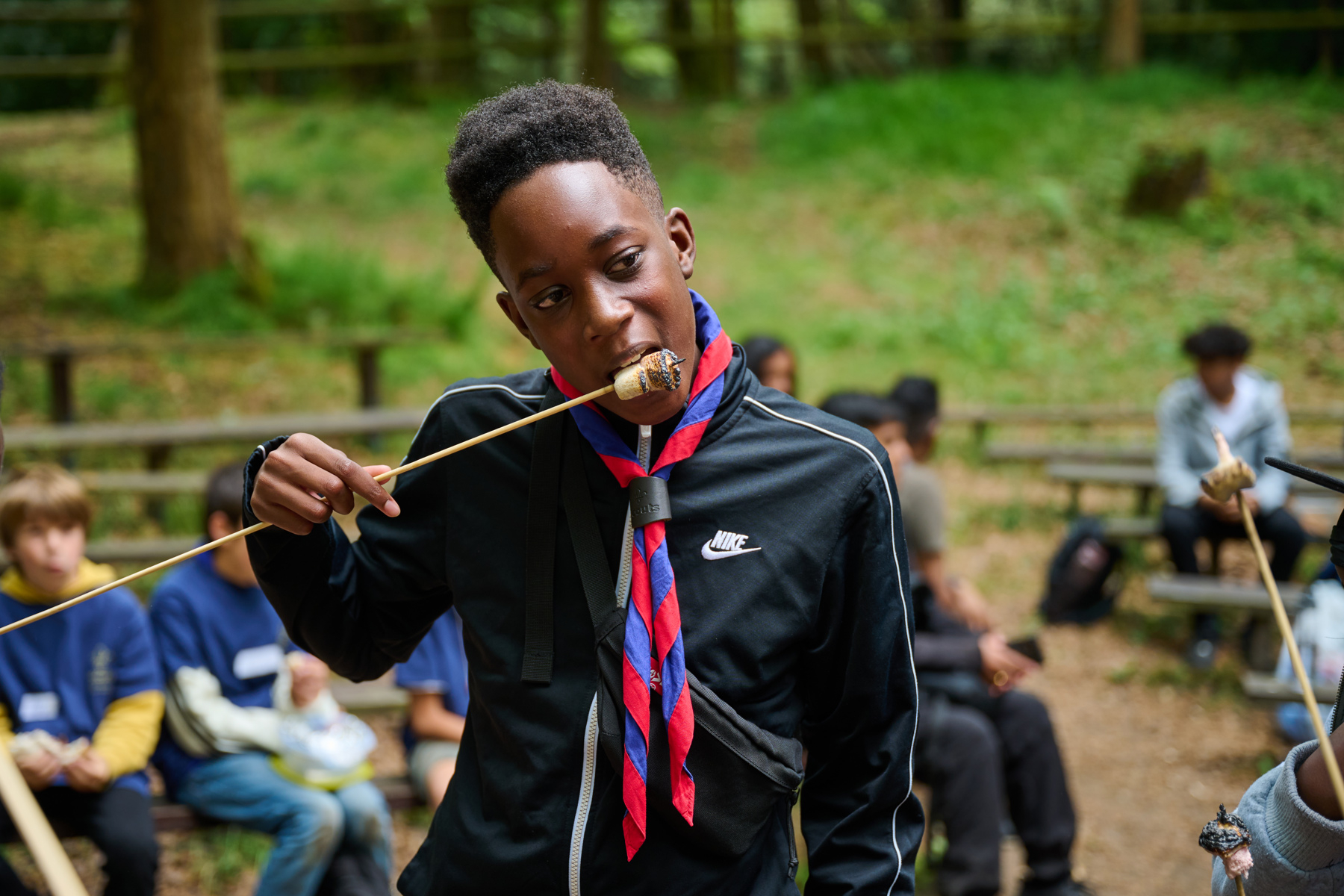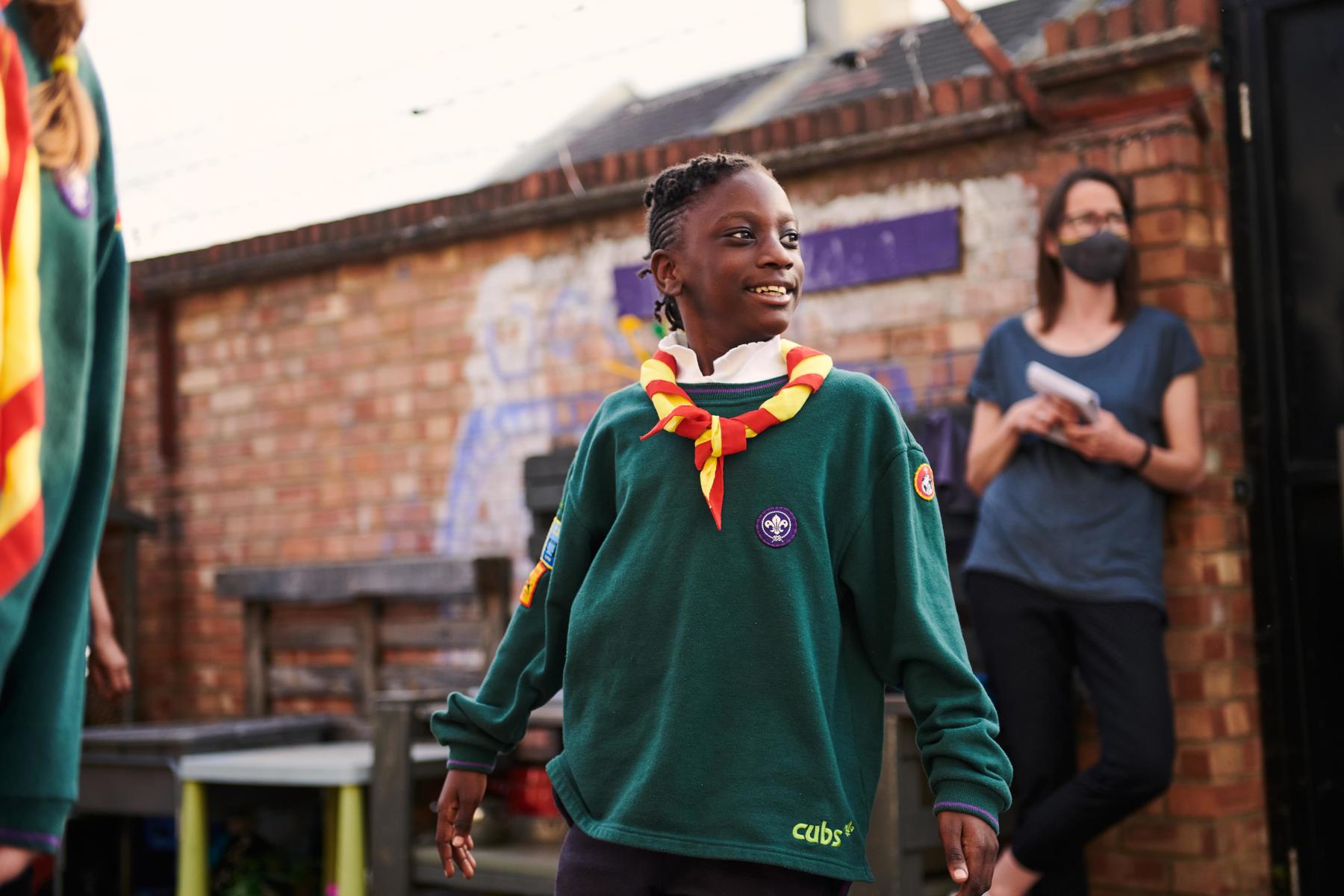How you can learn about Black history and culture all year round
We’re now approaching the end of Black History Month. This year was all about ‘Saluting our sisters,’ and appreciating the brilliant achievements of Black women throughout history.
Whether you’ve learned about Bessie Coleman, the first Black woman to earn an aviation pilot’s licence, or Mary Seacole, known for her medical work during the Crimean War, we hope the month’s given you the chance to learn even more about Black history and culture.
While Black History Month is an opportunity to highlight important moments and themes, it’s important we keep learning, talking, and celebrating about Black history and culture all year round.
We've got plenty of ideas for your programme to get you started.

How to keep learning about Black history and culture
By talking about race and racism, we can help make Scouts even more inclusive. It’s important we all know how to treat one another kindly and live our values of care, integrity, and respect.
We’ve some guidance for talking to young people about race and racism to help you start conversations in your group.
You could use our Equity spaghetti activity to talk about equity, equality, and inclusivity.
If you’d like to use a historical moment to get your conversations started, you could talk about Martin Luther King’s famous ‘I Have a Dream’ and learn about its context.
Remember to bring your young people back to the present day to talk about how you can be anti-racist and help everyone feel included.
Some great days to run this could be:
- Martin Luther King Day (15 January)
- International Day of Education (24 January)
With our Timeline for change activity, each young person can choose a Black person who made a difference to culture or British history. They can then research their story and find out some key facts about them.
Afterwards, each young person adds their person to the timeline and shares their chosen person’s story with the rest of the group, or with the person next to them.
Everyone then gets to tell the story and learn about inspirational Black people from history.
Some great days to run this could be:
- National Storytelling Week (30 January–6 February)
Next time you’re thinking about running a craft activity in a session, pick an activity that get young people thinking and learning about an inspirational Black person.
In our Recycled rocket jet pack activity, young people can learn all about Mae Jemison while they create their very own jet pack out of recycled material.
Or, our Art from the heart activity lets you learn about Rosa Parks and make art inspired by her.
You could even build your own model plane, just like the ones worked on by Lilian Bader, one of the first Black women to join the British Armed Forces as a member of the RAF.
Some great days to run this could be:
- Rosa Parks Day (4 February)
- International Women’s Day (8 March)
- British Science Week (8–17 March)
Perhaps you’re working towards your Book reader badge (or similar), or simply looking for a poem or excerpt of a story to kick off a session. Why not pick a book written by a Black author, or one featuring a Black main character?
You could even research an inspirational Black person from history to learn and talk about together and create your own little library of books.
Here are some book recommendations if you’re looking for a place to start.
Some great days to run this could be:
- World Book Day (7 March)
There are many other opportunities to learn about Black history that fall outside of Black History Month that you can mark in your programme.
Here are two ideas to get you started:
International Nurses Day, 12 May
International Nurses Day is a fantastic opportunity to learn about the life of Mary Seacole, who became famous for her medical work during the Crimean War. In 2004, she was voted the Greatest Black Briton of all time. Why not write a story or design a poster to show what she did? You could also work towards your Emergency Aid Staged Activity Badge.
Windrush Day, 22 June
Windrush Day is an anniversary we mark each year. It’s a great opportunity to learn all about the MV Empire Windrush ship, which docked in Tilbury on that day in 1948, and the Windrush generation.
Hundreds of passengers on the ship were Jamaican, but so many more people arrived from islands including Trinidad, St Lucia, Grenada, and Barbados. These travellers, and people on other ships who arrived in the UK until 1971, became known as the Windrush generation.
In your session, you could create artwork, paintings, or collages to celebrate MV Empire Windrush and host your own art gallery.
For the 75th anniversary of Windrush (Windrush 75) this year, we chatted to Scouts volunteer, Mike Clarke, to find out what the anniversary means to him.
Next time you host a party, take the opportunity to learn about a Caribbean carnival.
With our Let’s celebrate Caribbean carnival activity, you can make colourful headbands, try Caribbean flavours and get dancing.
Before your party starts, get chatting about the woman who started Notting Hill Carnival, Claudia Jones. As a group, you could start creating your own newspaper, just like Claudia Jones did when she set up the Indian Gazette in 1958.
Some great days to run this could be:
- Notting Hill Carnival (August)
- World News Day (28 September)
Get your sweet treats and comfy seats ready for your very own Black history themed movie night.
Pick a movie related to Black history and culture, or with a Black lead character.
Remember to make time to reflect on the movie at the end.
Ask everyone to think about the books they read, and the films and TV shows they watch, as well as the roles that Black people play.
Then ask the following questions:
- Are they often leading roles or supporting characters?
- Are they authority figures, heroes, or villains?
- Who do they think is represented most in films?
- Why's it important that Black people are represented in films?
You could then have a conversation about unconscious bias and how under-representation is linked to injustice and inequality.
Our Night at the movies activity has plenty more talking points and ideas, as well as film recommendations for you to choose from.
Some great days to run this could be:
- National Cinema Day (2 September)

We asked Scouts why they liked doing activities about Black history? Here's what they said.
Lucas, 11: Learning about really famous people that got overlooked, because now we know better, they should be recognised for their achievements.
Indie, 10: Everyone is different, differences should be celebrated and be as important as similarities.
Caleb, 7: I like to learn about Black history because it’s interesting. I like to watch documentaries and read books written by Black authors.

To me, Black History Month is a time to celebrate the black community’s accomplishments and heritage. It’s a time to find the ways that Black people had a long-lasting impact on our life now and discover the motivating roles they play in our society before and now. It’s also a time to find out our culture and find out more about ourselves. As well as celebrating Black people, we can commemorate the people that helps black people get who they are today.
Lisa, 13
Analuisa, 10: Because we learn about diversity, when everyone is treated equally with gender, skin, life, and race.
Lucy, 13: We learn different cultures, and different black stories and histories.
Aaron, 11: We can learn that everyone should be treated with respect and help one another if they need it.

We asked Scouts why they think it’s important we learn about Black history?
Caleb, 7: To celebrate those with Caribbean and African heritage who’ve helped society and to understand Black History in general and not just for one month.
Nye, 12: Having a different race is such a common thing you shouldn't be treated differently for it.
Riley, 12: Every life matters, people shouldn't be disrespected because of their race. Everyone should be respected.

Black History Month allows me to learn a little more about myself, about my family and the work done in the black community in history! I find out interesting things I didn’t know before and my friends also get educated on Black history. My mum uses every month and things that happen in our day to teach me something about myself, too.
Eliza
Matilda, 10: No matter what you look like, everyone should be appreciated.
Muhammed, 12: Because inequality should not exist, as all humans come from earth and one earth only.
Aadhithya, 10: To learn about equality and being treated nicely.
Nina: We can learn about some of the important things Black people have done in the past to help us all get to where we are today.

We hope you've got plenty of inspiration to keep learning about Black history all year round. Remember to visit our Activity finder for brilliant cultural activities for your upcoming sessions.